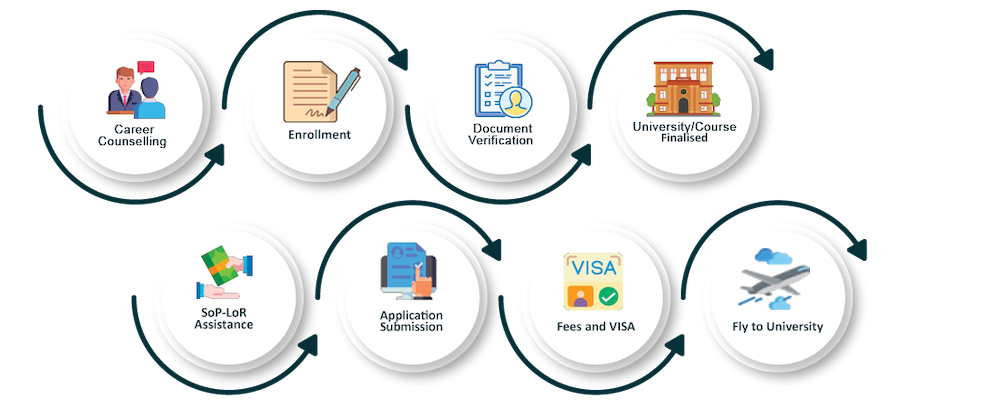The city of Ottawa, in the province of Ontario, is home to the Canadian institution of higher learning known as Carleton University. The establishment of the college occurred in 1942, initially known as Carleton College. Subsequently, it achieved university status in 1957. The institution takes its name from what was formerly Carleton County, which was named after Guy Carleton, 1st Baron Dorchester, who held the positions of Governor General of the Province of Quebec and Governor-in-Chief of British North America between the years 1786 and 1796.
The Rideau River and the Rideau Canal encircle the primary campus's 62 hectares (152.23 acres) of land on two sides. Due to the fact that several buildings on campus have been developed using green building principles, It is widely recognised as a pioneering institution in the field of environmental responsibility. It has modern amenities such as cutting-edge research laboratories, libraries, classrooms, and student housing. The Carleton University Dominion Chalmers Centre, a historic church turned into a performing arts complex, is another significant building on campus.
It is well-known for its research and development. It is the location of a large number of research centres and institutes that concentrate on a variety of topics, including environmental protection, computer security, aerospace, public policy, and human rights. It gives students the opportunity to work alongside faculty members on innovative initiatives and actively encourages student participation in research activities.
It is home to a thriving student community that contributes significantly to the school's overall atmosphere. Outside of school, pupils are able to engage in a variety of clubs and groups. These activities can take the form of sporting teams, clubs, or societies. Our athletics programme, which competes under the name Carleton Ravens in a variety of sports, has enjoyed a great deal of success, particularly in the sport of basketball. In general, It is an esteemed establishment that offers its students an education of the highest possible quality as well as an engaging and stimulating atmosphere in which to study.
It has consistently maintained a solid position in the rankings over the past decade, with few fluctuations. The high ranking of World University Rankings serves as evidence of the institution's established academic standing.

THE
601

QS
601
| Course | Duration | Fee/Year |
|---|---|---|
| Master of Science in Physics - Theoretical Physics | 24 Months | CAD - 17,827 |
| Master of Science in Chemistry - Analytical Chemistry | 24 Months | CAD - 17,827 |
| Master of Science in Biology - Cellular and Molecular Biology | 24 Months | CAD - 17,827 |
| Masters of Information Technology (Digital Media) - Human-Computer Interaction | 24 Months | CAD - 17,827 |
| Masters of Information Technology (Network Technology) - Network Architecture | 24 Months | CAD - 17,827 |
| Master of Science in Health Sciences - Health Policy | 24 Months | CAD - 17,827 |
| Master of Science in Health: Science, Technology and Policy - Health Policy | 24 Months | CAD - 17,827 |
| Master of Science in Neuroscience - Molecular Neuroscience | 24 Months | CAD - 17,827 |
| Master of Science in Earth Sciences - Geology | 24 Months | CAD - 17,827 |
| Master of Science in Mathematics and Statistics with Specialization - Pure Mathematics | 24 Months | CAD - 17,827 |
Carleton University's admissions committee is constantly looking for signs of the kinds of students who are going to graduate from the school in the future. It is quite necessary to perform a careful examination of one's admissions application in order to ensure that all requirements have been satisfied prior to submitting the application.


The objective of this study is to ascertain the monetary benefits that students derive from their educational pursuits. Furthermore, there are supplementary advantages, such as an augmented capacity to generate income and a wider array of pertinent employment opportunities.
Tuition costs, the institution's proximity to a topic of interest, the size and scope of the university's alumni network in related fields, the availability of career counselling services, and the reputation and calibre of the educational programmes offered are just a few of the factors considered in this evaluation.
Based on 108 profiles, graduates earn an average of $185k, with the majority earning between $168k and $355k per year. The prominent firms that actively recruit graduates are Jones Lang LaSalle, Broadcast, and Ernst & Young.
Carleton University Graduate and Alumni Salaries - By Degree, Job, and Degree
| Course | Annual Package |
|---|---|
| Executive Management and Change | $120,000 |
| Engineering | $59,000 |
| Financial Services | $53,000 |
| Marketing, Product and Communications | $50,000 |
| IT and Software Development | $47,000 |
Yes; students at Carleton University can study abroad or take part in exchange programmes with schools all around the world. Students can get international experience and broaden their viewpoints through these programmes.
It is well-known for its research-intensive atmosphere. Participants are afforded the opportunity to engage in various research efforts across several academic fields, collaborating with esteemed faculty members on pioneering research initiatives.
It provides its students with numerous leisure options. These amenities include a state-of-the-art fitness facility, athletic venues, both indoor and outdoor tennis courts, swimming pools, and fitness centres, as well as access to a variety of additional leisure programmes and activities.
Graduates of Carleton University are well-prepared to pursue a wide variety of employment choices. Students are able to get significant experience and improve their employability through Carleton University’s robust industry linkages, cooperative education programmes, internship opportunities, and career development services.
Yes, Carleton University does offer a robust co-op programme that gives students the opportunity to gain meaningful job experience in a sector that is relevant to their area of study. The co-op programme allows students to enhance their employability after graduation by combining periods of academic study with paid work in the community.